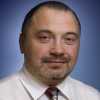Russia’s primaries in the regions will start this week, with Prime Minister Vladimir Putin’s All-Russia People’s Front dominating the political landscape. The ruling party’s list of candidates for State Duma elections in December will be based on the results of this initial stage of voting. The list of candidates for the primaries was developed at the local level, but the front’s federal coordinating council, headed by Deputy Prime Minister Vyacheslav Volodin and his staff, will formulate the final lists.
It would be an exaggeration to call these actual primaries. The process more closely resembles a series of opinion polls, with United Russia using the results to create its party lists for elections to the Duma, where the front’s candidates should receive one-fourth of the seats.
In reality, there is no obligation at all to base the final candidate lists on the results of the primaries. The front’s regional coordinating council will give final approval to a special list of authorized individuals from United Russia and nongovernmental organizations who will participate in the primaries.
After the primaries end on Aug. 11, the results will be sent to Moscow for fine-tuning, with regional United Russia conferences then choosing delegates to the party’s national congress and submitting their proposals for the list of candidates. At that point, Putin will make his changes to the list before submitting it to a United Russia national congress on Sept. 3-4 for confirmation.
But it is already apparent that many United Russia politicians will be culled from the lists. As far back as early May, it was known that incumbent deputies would only make it onto the lists if they had not outworn their popularity by serving three or more terms in the Duma, if they had not been involved in any public scandals, or if they had contributed to the advancement of the party in some way and had not simply used United Russia for personal gain.
Major personnel shifts have already taken place since the last elections, most notably among the corps of governors. The result is that a host of Duma deputies whose political fortunes were linked to former Mayor Yury Luzhkov and former Bashkortostan President Murtaza Rakhimov will also be absent from the upcoming elections. In Moscow, 10 of the 16 incumbent deputies will not participate in the primaries, and the same fate awaits about one-fourth of all incumbent United Russia deputies. Putin is determined to get rid of the party’s deadweight.
In the most troubled regions, United Russia is employing the tactic of heading party lists with deputy prime ministers or Putin-appointed ministers on whose coattails other candidates can ride and whose names elicit the least negative reaction among voters. At the same time, the number of regional leaders heading party lists in their own regions has dropped substantially.
Even in this Russian version of primaries in which Moscow remains the ultimate arbiter, it is possible to discern a certain growth of intra-party democracy and political competition. The problem is that however well these tactics might enable the ruling party to hold onto its Duma majority, they will not solve the problem of its declining legitimacy — an issue that will come to the fore after the new government is formed in 2012.
Nikolai Petrov is a scholar in residence at the Carnegie Moscow Center.
A Message from The Moscow Times:
Dear readers,
We are facing unprecedented challenges. Russia's Prosecutor General's Office has designated The Moscow Times as an "undesirable" organization, criminalizing our work and putting our staff at risk of prosecution. This follows our earlier unjust labeling as a "foreign agent."
These actions are direct attempts to silence independent journalism in Russia. The authorities claim our work "discredits the decisions of the Russian leadership." We see things differently: we strive to provide accurate, unbiased reporting on Russia.
We, the journalists of The Moscow Times, refuse to be silenced. But to continue our work, we need your help.
Your support, no matter how small, makes a world of difference. If you can, please support us monthly starting from just $2. It's quick to set up, and every contribution makes a significant impact.
By supporting The Moscow Times, you're defending open, independent journalism in the face of repression. Thank you for standing with us.
Remind me later.






